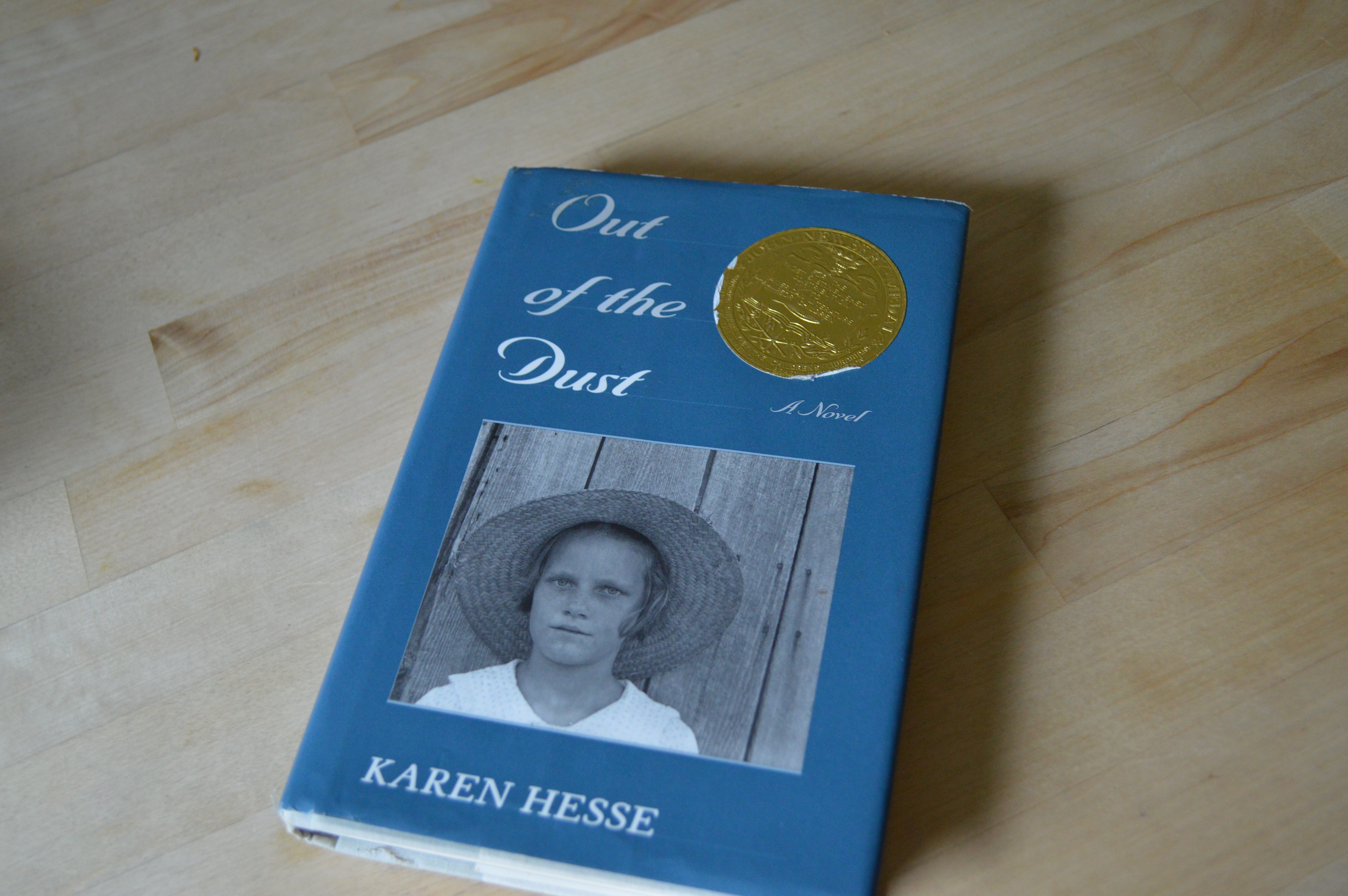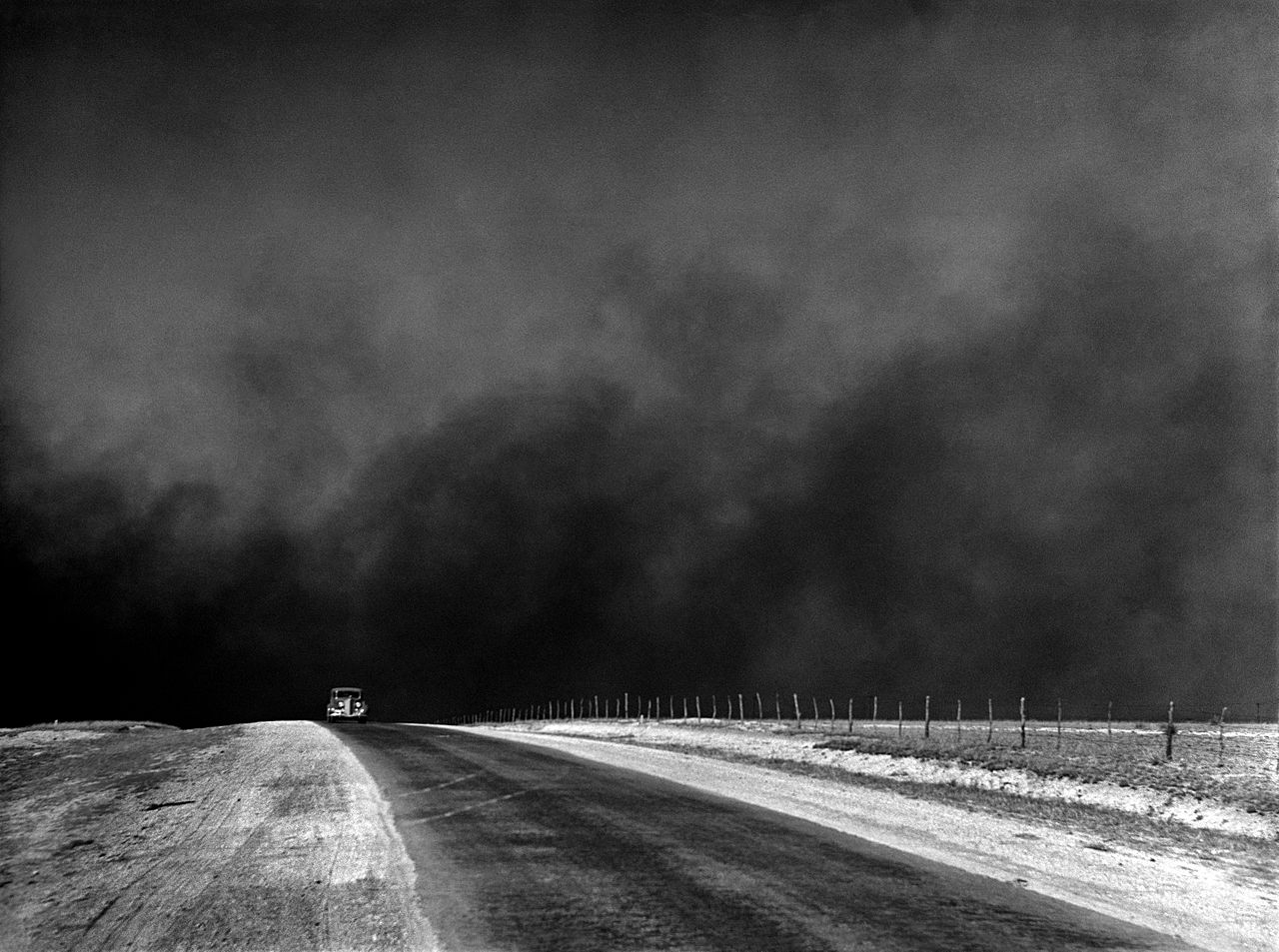
1998 Newbery winner, Out of the Dust by Karen Hesse is a verse novel set in Depression-era panhandle Oklahoma during the devastating Dust Bowl. Narrator Billie Jo is an only child of fourteen whose mother is finally pregnant with a much anticipated new baby while their farm is enduring a terrible drought. I came into reading this book knowing that people tend to have fairly strong reactions to it, loving the sparse poems and bleak story or really disliking the style and substance of this novel. Specifically, I knew that several teachers personally enjoyed reading it, but found that in the classroom they struggled to help their students connect to the story. So I really read the book with that lens in mind: what makes some people love this book and others not? There are going to be a good number of spoilers in this review, so you might want to read it for yourself first. (It is a pretty quick read, although, fair warning, it is a sad book that gets sadder before it gets really sad and then has a more hopeful ending.)

What I liked/What I found interesting. The setting of this book: the dust, the drought, and the constantly dashed hopes for rain are so evocative. I think it really transports the reader into that world with the dust storms and the way that living in the Dust Bowl was so horrible. It’s not a long book, less than 20k words, but I think the narrative impact on students reading about people living through the Dust Bowl would leave a lasting impression in a way that reading 20k words of a history textbook (roughly 2 or 3 chapters) might not.

What were some limitations. My main issue with this book is that it took on so many hard things at once: the terrible Dust Bowl, an unexpected and nearly fatal accident with long lasting physical, social, and relational damage AND two horrible family deaths. I think that one of those would have definitely been enough material to occupy a book. For me, at least the unexpected and pretty much unrelated tragedy that happens 1/3 of the way through the book was so unexpected (I mean if I had read the dust jacket it wouldn’t have been, but I didn’t) that I really could see how students who had been feeling the book was just about a family overcoming the Dust Bowl would feel like they couldn’t connect to so much pain and hardship.

Now, I will say that I think I have a bias against unexpected deaths in middle grade novels. I read a novel (whose title I won’t mention) that was humming along and with no warning, a toddler was killed. I didn’t like it at all; I felt totally manipulated as a reader and didn’t like the book. Years later I heard the author of that book on a podcast casually mention that the incident came out of her real-life childhood experience. (That made me feel bad about my first reaction to the book, that she had written it to intentionally manipulate me!) Other people I know had a similar reaction to reading Bridge to Terabithia (Newbery #57)), which I personally still loved when I read it as a child.
So I think there is some room for personal preference in when or whether middle grade novels need to tackle unexpected deaths: are middle grade novels places where young readers can feel more safe exploring tough issuing knowing that main characters aren’t going to randomly and abruptly die or are they books that give young readers hope and guidance for dealing with those kind of senseless random deaths that unfortunately some of them are going to have to or will face in real life? I think it’s an honest question and different authors and readers are going to have different answers.

Similarity to other Newbery winners. While there are many books that deal with the deaths of mothers (Up a Road Slowly, Summer of the Swans, A Gathering of Days: A New England Girl’s Journal, Sarah, Plain and Tall, Missing May , Dicey’s Song, and Walk Two Moons), this book begins a bit of a series of Newberies that are set in the Great Depression. I would also classify this book as one of the sadder and more difficult Newberies (like The Slave Dancer , M. C. Higgins, the Great, Sounder all of which I found hard to get through) but still ultimately more hopeful (more like Amos Fortune, Free Man, Johnny Tremain and Island of the Blue Dolphins) while it tackles strained father-child relationships (like …And Now Miguel, Miracles on Maple Hill, Onion John, Dear Mr. Henshaw). Also, this was the first verse novel to win the Newbery.

What it teaches me as a writer. This book reinforces to me that one of the hallmarks of a middle grade novel is a hopeful ending. This ending is by no means “happy” but it is hopeful. And as more time passes from when I slogged through the middle of this book, what stays with me is mainly the evocative setting of the Dust Bowl and the ultimately hopeful ending of Billie Jo and her father who seem like they are going to make it after all.

Have you read Out of the Dust? What are your favorite free verse novels?
*Note* This post contains Amazon affiliate links, which means if you were to buy a book, I’d get a tiny commission at no cost to you. Thanks for supporting Stories & Thyme!*